We are just completing an order of ten tables for the new chemistry building at Princeton University. For the most part, these tables are not unusual: maple, rectangular tables in two sizes with solid wood tops and square legs – simple. There is one little twist though. We were asked to build these tables with no metal parts; no metal screws or hardware or bits of metal of any kind.
We don’t typically use a whole lot of metal in our tables anyway but the challenge here was to figure out how to attach the tabletops to the table bases in a way that would withstand hard use in a college setting, without the use of metal screws.
Here’s what we did.
We drilled key-slot holes in the underside of the table top, and created a groove along the inside of the table aprons. We made small maple blocks with tongues that fit snugly into the groove. We attached the wooden blocks to the tabletop with hard nylon nuts and bolts which fit into the key-slot holes.
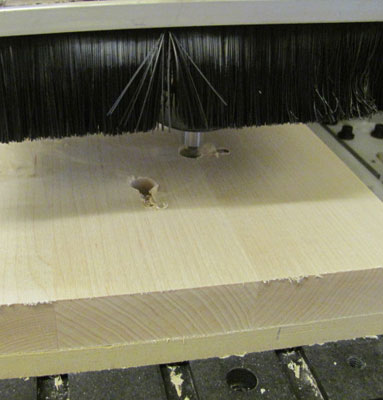
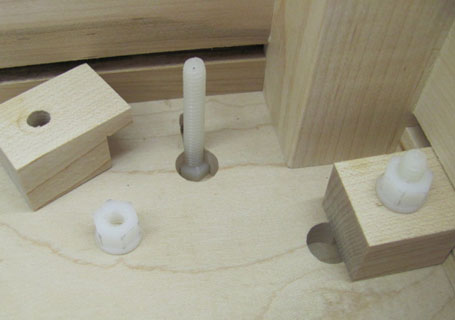
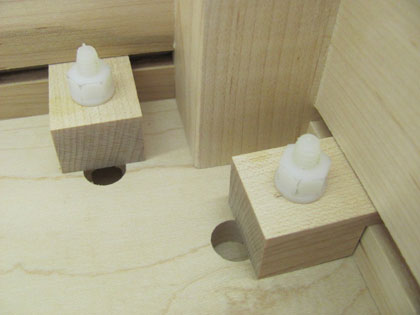
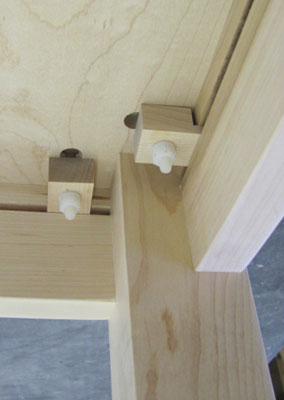
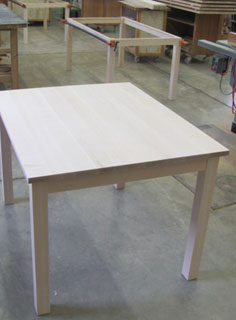
And all this made us wonder WHY we couldn’t use metal. So I asked our contact at Payette, the architectural firm managing this project. I got a little tutorial.
The tables are going to be placed in the NMR Suite, or magnet lab, within the chemistry building. The magnets in this lab are HUGE. Some may weigh as much as 30 tons and stand up to 20 feet high. They are used primarily for Nuclear Magnetic Resonance (NMR), “an effect whereby magnetic nuclei in a magnetic field absorb and re-emit electromagnetic energy.” (Wikipedia). NMR, I’m told, is used to study properties of matter and allows scientists to look at compounds at a molecular level. It can help us understand such things as what changes a potential drug might create in the brain, or what molecules make up a sample of crude oil, telling us whether or not it’s worth getting out the drill.
“So,” I asked, “what happens if there are a few screws in these tables when they’re used in the lab?”
“Well,” explains our architect friend, “my understanding is that the tables might fly across the floor and crash into the magnets.”
We certainly don’t want that to happen.